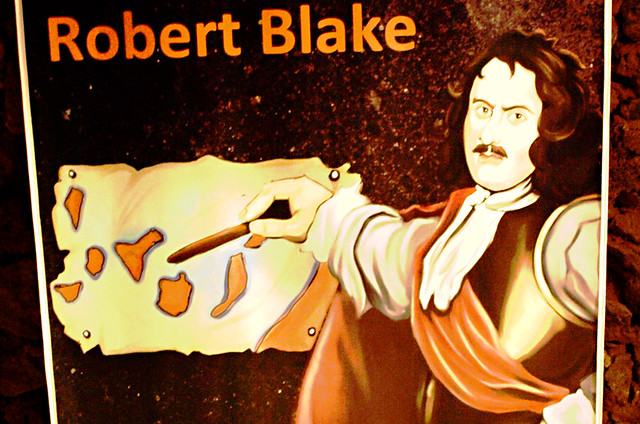On 25 July 1797 Rear-Admiral Horatio Nelson was defeated, losing an arm in the process, after his troops had unsuccessfully tried to attack Santa Cruz, the capital of Tenerife.
He wasn’t the only British naval commander to experience defeat at Santa Cruz.
Admiral Robert Blake also tasted defeat in Santa Cruz in 1657… or did he?
For years I’ve swallowed without question the Blake being seen off by brave Spanish forces version.
I’ve been fed this version since I moved here. This is what the Pirate Museum in Lanzarote says about the affair.
‘The name of Robert Blake has been linked to the Canaries since 1657 when he made a frustrated attempt to invade Tenerife.’
No question about Blake being soundly beaten.
And then I actually carried out a bit of research. It didn’t take much to uncover that Spanish historians’ interpretation of the outcome of the battle may owe more than a bit to poetic licence.
Here’s what actually happened.
On 20 April 1657, during the Anglo-Spanish war, Admiral Robert Blake launched an attack on the Spanish fleet in Santa Cruz harbour.
By the middle of the afternoon every single Spanish ship, including the flagship of Spanish Admiral Don Diego de Egues, had been sunk or was on fire. All sixteen ships were destroyed.
Not one of Blake’s ships were destroyed. Every one of them sailed away from Santa Cruz after the battle was over.
Nobody disputes this.
As far as casualties are concerned, 48 of Blake’s men were killed during the battle as opposed to 300 Spanish soldiers and sailors who were killed in the conflict.
Whilst some of the treasure that the ships had been carrying had been offloaded and safely transported to La Laguna, there was still an estimated loss of around ten million pounds.
Nobody disputes this.
Where interpretations vary wildly is regarding who actually won the battle.
In Britain, Blake was seen to have won an important victory that helped establish the country as a leading naval power in Europe. The aim of the attack, being the destruction of the Spanish fleet, resulted in a loss to Spain that was seen to have dire consequences for their military campaigns, leading to further defeats against the British and the French. Blake was a hero.
Spanish historians saw a very different picture. They claimed that Blake had actually failed to invade Tenerife and hadn’t actually recovered the treasure that had already been removed from the ships. There was a lot of rhetoric from the likes of Viera y Clavijo who described the battle as a clear victory for the local forces.
It was a great victory for Spain.
Maybe I’m looking at this in a very simplistic way but the outcome of the Battle of Santa Cruz in 1657 seems glaringly obvious.
If you can convince your subjects, when you’ve lost all your fleet and the other guy sails away without having lost even one ship, that you were the victorious party, then I guess you can pretty much feed them any old nonsense.
No wonder Santa Cruz doesn’t re-enact that one. ‘Madre, madre… if we’ve won why are all our ships underwater and the British ones aren’t?’
Isn’t history fascinating?





Be the first to comment